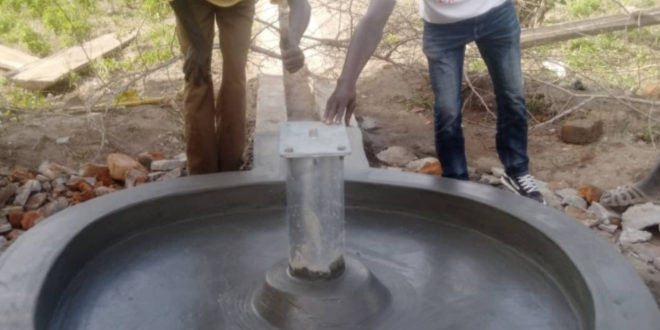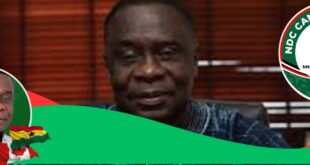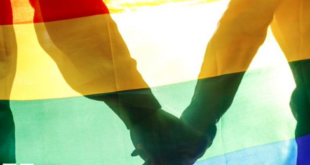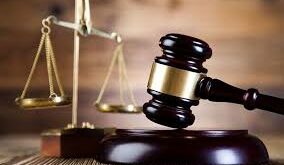Story by: Richard Onapatum
The authorities and residents of Dokomeri Cell, Ngariam County, Katakwi town council in Katakwi district, Eastern Uganda have appealed to government agencies or well wishers to atleast provide them with a clean and safe water drinking source.
The residents have for the last 15 years been sharing water with animals in the swamp putting their lives at risk of contracting water borne diseases.
Water in katakwi from various sources is put to multiple uses including human, livestock and wildlife consumption. In addition, the open water sources being rich in bio-diversity are a source of fisheries resource. Wetlands occupy the transition between open water bodies and terrestrial eco-system and perform important regulatory functions.

Rainfall is the principal contributor of water to the surface bodies. Ground water is found in aquifers, which are water-bearing formations with hydrological characteristics that allow water to be extracted in significant amounts through the use of boreholes and dug wells.
The chairperson defense in Dokomer Cell, James Steven Ilakut says most villages in the area lack boreholes and only fetch water from unprotected spring well that doesnot provide safe and clean drinking water.
“since our borehole broke down 10yrs ago, the district has abandoned it claiming there are no resources” said Ilakut
Ilakut adds that many leaders including political leaders have been deceiving them promising to repair the borehole but nothing had been done.
“whenever we go to the district asking for a water source we are told our area is supposed to receive tap water. This to us for now is very expensive” he exclaimed!
The community of about 10000 households survives with water from an open hand dug well that serves two villages of Abelebuku (Aliakamer) and Dokomer
Akello Florence, a resident, said that for so long they have suffered from water borne diseases from the well and they trek 3km in search of drinking water.
“When rain falls the well floods, you have to be stressed to distill for household use such as cooking” or you have to walk to the neighbouring villages in search of clean water” said Akello
*What the District water officer says,*
The acute shortage of water is not only recorded in Dokomer, but across all the 20 sub counties of Katakwi district.
Recently Ms. Eseza Lydia Apio, the Katakwi District Water Officer, affirmed that her office has received several cases of water points running short or out of water and she attributes this to two factors i.e CLIMATE CHANGE which the officer explained that the district experiences both floods during rainy seasons and high peaks of droughts, which all have diverse effects.
Apio also attributes running out of water from some boreholes to the poor operation and maintenance by water users.
According to her, she has found out that in most cases, when a pipe gets perforated, community members remove it and never replace it.
“In a borehole that could have been having 10 pipes, they remove two and remain with only eight and yet the recommendation for installation was 30 meters. That means the pipes left are able to reach only 26 meters and water is left under. The hanging pipes will not be able to reach the water,” Apio explained
*What working solutions are being implemented so far*
Dan Mulalu the private Secretary in charge of political mobilization under state house, has taken an initiative to prioritize the repair of non-functional wells and boreholes across Ngariam County to ensure that the population gains access to safe and clean water.
Several wells and boreholes previously drilled across the district are entirely non functional.
Ahead of his 2026 Member of Parliament bid For Ngariam County, Mulalu has commissioned the drilling and maintenance of 45 boreholes in Ngariam County.
“Many boreholes were originally installed with plastic parts which break easily or with galvanized iron parts which rust quickly in volcanic waters” said Mulalu
According to Mulalu, he plans to repair every well and borehole under his desk no matter who originally installed it, so as to accelerate the consumption of safe clean water.
The water access rates in Katakwi vary from 80 % in Magoro Sub-County to 95 % in Katakwi TC Sub-County. Katakwi has 702 domestic water points which serve a total of 183,137 people – 173,988 in rural areas.
46 water points have been non-functional for over 5 years and are considered abandoned. Katakwi has 3 piped schemes.
*Water is a Global Goals for Sustainable Development*
In 2015, world leaders agreed to 17 Global Goals (officially known as the Sustainable Development Goals or SDGs) aiming to create a better world by 2030 by ending poverty, fighting inequality, and addressing the urgency of climate change.
The 17 Global Goals are:
(1) No Poverty, (2) Zero Hunger, (3) Good Health and Well-being, (4) Quality Education, (5) Gender Equality, (6) Clean Water and Sanitation, (7) Affordable and Clean Energy, (8) Decent Work and Economic Growth, (9) Industry, Innovation and Infrastructure, (10) Reduced Inequality, (11) Sustainable Cities and Communities, (12) Responsible Consumption and Production, (13) Climate Action, (14) Life Below Water, (15) Life On Land, (16) Peace, Justice, and Strong Institutions, (17) Partnerships for the Goals.
The 6th goal of sustainable development clean water and sanitation is to ensure availability and sustainable management of water and sanitation for all. More specifically, 8 targets need to be attained by 2030:
1. Achieve universal and equitable access to safe and affordable drinking water for all.
2. Achieve access to adequate and equitable sanitation and hygiene for all and end open defecation, paying special attention to the needs of women and girls and those in vulnerable situations.
3. Improve water quality by reducing pollution, eliminating dumping, and minimizing release of hazardous chemicals and materials, halving the proportion of untreated wastewater and substantially increasing recycling and safe reuse globally.
4. Substantially increase water-use efficiency across all sectors and ensure sustainable withdrawals and supply of freshwater to address water scarcity and substantially reduce the number of people suffering from water scarcity.
5. Implement integrated water resources management at all levels, including through transboundary cooperation as appropriate.
6. Protect and restore water-related ecosystems, including mountains, forests, wetlands, rivers, aquifers, and lakes.
7. Expand international cooperation and capacity-building support to developing countries in water- and sanitation-related activities and programs, including water harvesting, desalination, water efficiency, wastewater treatment, recycling, and reuse technologies.
8. Support and strengthen the participation of local communities in improving water and sanitation management.
*How is Mulalu’s Kazi ni Kazi Foundation participating?*
The Foundation focuses on many of the SDGs,(Sustainable Development Goals) but so far mainly on the 6th goal, since our mission is to ensure sustainable access to safe water, sanitation, and hygiene (WASH) for the most vulnerable communities through innovative partnerships, creativity, and the power of art.
As Kazi ni Kazi Foundation, They are always ready to go above and beyond to achieve true long-term sustainability.
They believe in the combined power of providing access to safe WASH services, promoting healthy behaviours, and encouraging capital to support income-generating activities and market-based solutions.
 Home Of Ghana News Ghana News, Entertainment And More
Home Of Ghana News Ghana News, Entertainment And More





